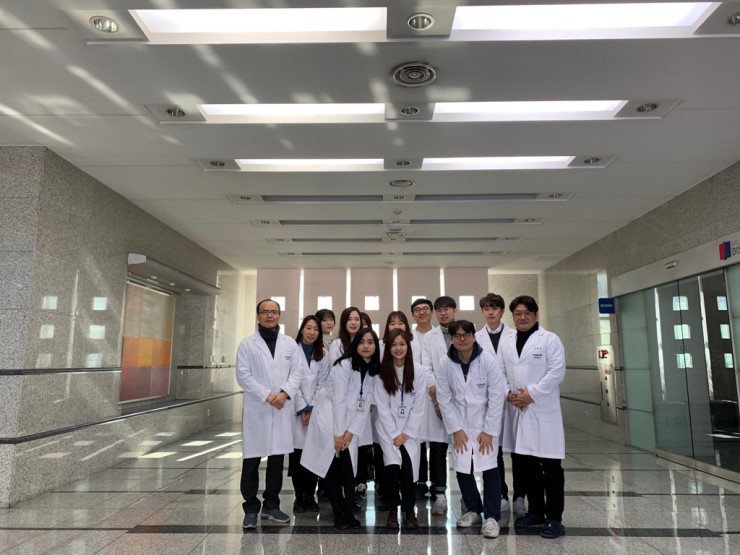
Overview
Laboratory Introduction
Cancer Genomics Research Laboratory; CGRL
Cancer Genomics Research Laboratory; CGRL
For over 20 years, our lab members have been conducting translational research for cancer precision medicine, trying to offer a new anti-cancer treatment strategy by developing and validating novel biomarkers through genetic / epigenetic analytic approach. As of 2021, 16 research members are working hard on their research
Related Researcher

Taeyou Kim Professor
- Email : kimty@snu.ac.kr
Research topics
(1) Cancer Genomics By developing the cancer panel for the first time in Korea, we explored and reported the possibility of selecting targeted anticancer agents. Using this cancer panel, it is possible to provide personalized therapeutic guidelines for the cohort of specific cancer patients, by performing targeted sequencing analysis using patient tissue or blood (circulating tumor DNA) samples. (2) Cancer Epigenetics Furthermore, our research also focuses on the molecular biological mechanism of 'Cancer Epigenetics' that occurs specifically for cancer cells during the cancerous process. In particular, based on CRISPR/Cas9 epigenetic-editing technology, we developed a gene expression control technique through manipulation of epigenetic state mutations, and the research is currently underway to further develop a technology to increase drug sensitivity and overcome resistance to cytotoxic anticancer drugs in cancer cells. (3) Molecular Target-based Therapies Based on Organoid Through next-generation genome analysis using cancer patient tissue and cancer cells, we perform integrated analysis on the information on the states of molecular genetic variation, i.e., mutation, amplification, indel, fusion gene, novel transcripts, RNA editing, etc., pathological information, anticancer drug sensitivity information or alternatively, information on the reactivity of more than 150 molecular targeted therapeutics and anticancer drugs for organoids and cancer cell lines derived from cancer patients. In addition, we are performing translational research to identify the mechanism by discovering biomarkers that predict the therapeutic effect of anticancer drugs. Through this, research on novel target and treatment strategy development for colorectal cancer precision treatment are in progress.
Research goals
Overall, the purpose of our study is to develop a technology that can identify specific network abnormalities in each patient's cancer cells by integrating genomic and epigenetic mutation information of patient cancer cells, and suggest a precision treatment strategy.
Research achievements
• Aberrant GATA2 epigenetic dysregulation induces a GATA2/GATA6 switch in human gastric cancer: Oncogene (2018) 37, 993-1004.
• Activation of WNT/β-catenin signaling results in resistance to a dual PI3K/mTOR inhibitor in colorectal cancer cells harboring PIK3CA mutations: Int J Cancer. 2018 Jul 6.
• FGFR2 amplification ispredictive of sensitivity to regorafenib in gastric and colorectal cancersin vitro: Mol Oncol 2018 Jun;12(7):993-1003.
• Liquid biopsy-based tumor profiling for metastatic colorectal cancer patients with ultra-deep targeted sequencing: PLoS One. 2020 May 7;15(5):e0232754.




